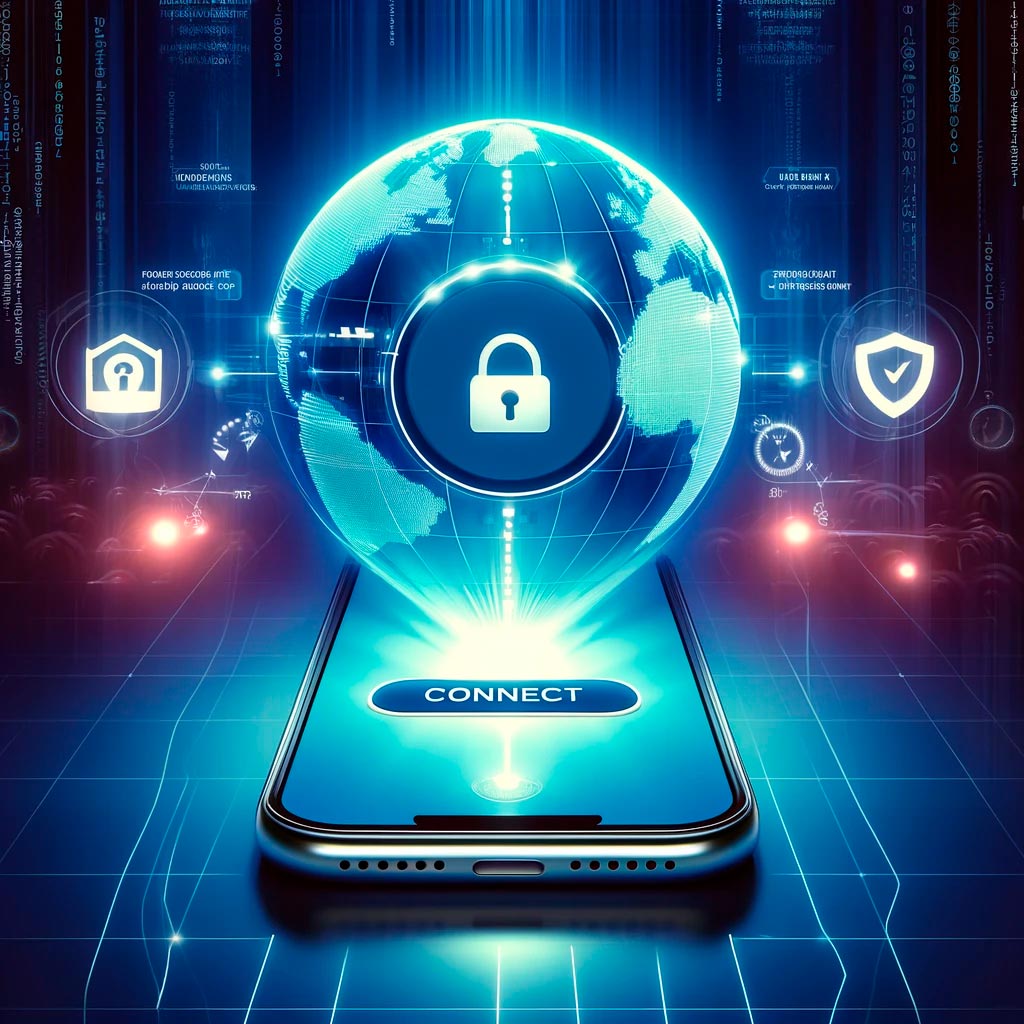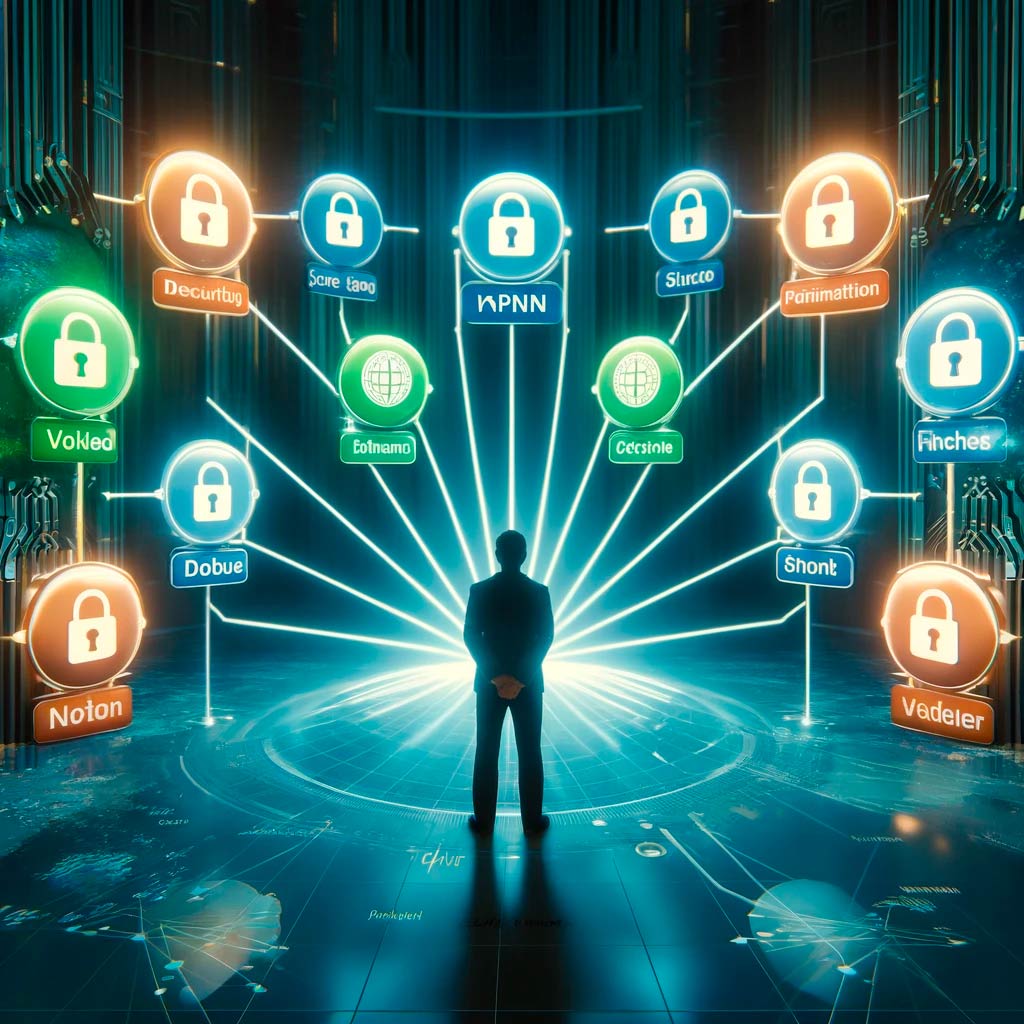Содержание
Have you ever encountered the error message “This video is not available in your country”? Or tried to access LinkedIn? Such restrictions can be bypassed by enabling a VPN on your device. A VPN (Virtual Private Network) is a service that allows you to protect your private data while browsing the internet and gain access to blocked websites.
In recent times, a vast number of people have been forced to switch to remote work formats. Many employers have mandated their employees to use VPNs for secure access to corporate services. Remote work has become one of the main reasons for the increased popularity of virtual private networks in 2020.

But what exactly is a VPN? How does it work, and what else can it be used for besides remote work? Let’s find out together. In this article, we will explain the principles of VPNs in simple terms, discuss the main tasks they address, and also explore potential downsides of using this technology. We hope this information will help you understand how crucial VPNs are for ensuring your anonymity and protecting your data online.
What is a VPN?
A VPN (Virtual Private Network) is a technology that creates a logical network over a physical one, such as the internet. Simply put, a VPN forms a sort of “tunnel” between your device and the provider’s server. All internet traffic passing through this “tunnel” is securely encrypted.
Imagine you are in a public place and connecting to a free Wi-Fi network. The owner of the access point or a hacker could theoretically intercept your data. However, if you have a VPN enabled, all they will see is encrypted traffic between your device and the VPN server. Decrypting it and accessing the transmitted information would be impossible for the intruders.
Another important function of a VPN is hiding your real IP address. It is replaced with the IP address of the VPN server. This ensures anonymity and allows you to bypass regional restrictions on accessing certain websites. Moreover, a VPN enables remote employees to establish a secure connection to the corporate network and work with internal company services from outside the office.
Thus, a VPN is a multifunctional tool that ensures secure data transmission over public networks through encryption and hides the user’s real location.
Why Do You Need a VPN?
A VPN addresses several tasks related to security and privacy online. Let’s look at the main scenarios where virtual private networks are used.
Firstly, a VPN is indispensable for remote work. It allows employees to connect to the corporate network from anywhere in the world and securely work with internal services and company documents. Additionally, a VPN can link offices and departments of an organization located in different cities or countries into a single secure network.
| Country | Percentage of VPN usage | The main reason for using |
| U.S. | 35% | Data privacy |
| India | 45% | Access to blocked sites |
| Russia | 25% | Circumvention of geographical restrictions |
| China | 55% | Access to blocked services (e.g. Google, Facebook) |
| Germany | 30% | Data privacy |
| South Korea | 20% | Data privacy |
| UK | 28% |
Privacy and security |
Secondly, VPNs provide data protection when connecting to public Wi-Fi networks. Whether you’re in a café, airport, or shopping mall, you risk becoming a target for hackers intercepting traffic. By enabling a VPN, you conceal your online activity from malicious actors and secure sensitive information such as passwords and credit card details.
Thirdly, VPNs help access websites and services that are blocked in certain regions. For example, if you’re in China, you won’t be able to access Facebook or Google without a VPN. By connecting to a server in another country, you can bypass regional restrictions.
A VPN also ensures online anonymity by hiding your real IP address and location. This helps avoid surveillance and protects you from intrusive targeted advertising.
Finally, using a VPN can save you money on purchases from international online stores. Prices for the same product can vary depending on the region. By connecting to a server in a country with lower prices, you can buy what you need at a cheaper rate.
Thus, a VPN is a versatile tool that provides security, privacy, and freedom online.
How Does a VPN Work?
To understand how a VPN works, imagine a tunnel established between your device and the provider’s server. When a VPN is enabled, all data you send and receive over the internet travels through this virtual tunnel.
Before sending your data through the VPN tunnel, the software encrypts it. This means transforming it into unreadable code that cannot be decrypted without a special key. Even if a malicious actor intercepts your encrypted traffic, they won’t be able to read or exploit it.

After passing through the tunnel, your data reaches the VPN server. Here, another crucial operation takes place – replacing your real IP address with the server’s IP address. As a result, websites and services you access see not your actual location but the location of the VPN server.
All data exchange between your device and the destination resource happens through the VPN server. From the perspective of the website or service owner, requests come not from you but from the VPN provider. This ensures the anonymity and confidentiality of your online activity.
Popular VPN Protocols
- VPN tunnels and data encryption rely on specific protocols. The most popular ones include PPTP, L2TP, IPSec, SSL/TLS, and OpenVPN.
- PPTP (Point-to-Point Tunneling Protocol) is one of the oldest VPN protocols. It is known for its ease of setup and compatibility with most devices. However, PPTP has significant encryption vulnerabilities and is considered insecure.
- L2TP (Layer 2 Tunneling Protocol) is effective for creating virtual networks but is usually used in conjunction with the more secure IPSec protocol for data encryption.
- IPSec (Internet Protocol Security) offers a high level of security through reliable encryption and authentication algorithms. However, it is quite demanding on the device’s computational resources.
- SSL/TLS (Secure Sockets Layer/Transport Layer Security) is most commonly used to secure data transmission on HTTPS websites but can also be used for creating VPN tunnels. This protocol provides strong encryption and good connection speeds.
OpenVPN is perhaps the most popular open-source protocol today. It combines a high level of security, flexible configuration, and good performance. Most commercial VPN services use OpenVPN.
The choice of protocol depends on specific tasks and security requirements. However, modern VPN services generally provide robust protection for your internet connection.
Downsides of Using a VPN
Despite all the advantages, VPNs have some drawbacks that you should be aware of before starting to use them.
One of the main downsides is a reduction in internet connection speed. This happens because your traffic goes through an additional server and is encrypted, which requires time and resources. The farther the VPN server is, the more significant the speed reduction may be.
Another potential issue is possible VPN connection drops. If this occurs, your traffic might “leak” into an unprotected connection, nullifying all the benefits of a VPN. Good providers have a built-in “kill switch” feature that blocks all traffic if the VPN connection suddenly drops.
It’s also worth noting that most VPN services do not support IPv6. This means that if a site you visit uses IPv6, your real IP address might “leak.” However, only a small percentage of internet resources have transitioned to IPv6 so far.
Another potential threat is DNS leaks. These occur when a VPN service, for some reason, uses your ISP’s DNS servers instead of its own. As a result, your provider might see which sites you visit, even with a VPN enabled.
It’s also important to consider the legislation of the countries where VPN servers are located. In some countries, providers might be required to keep logs and hand them over to authorities upon request. Therefore, it’s better to choose services based in countries with strong privacy protections, such as Panama, the BVI, or Switzerland.

And finally, there’s always the question of the reliability of global encryption standards. Theoretically, they could contain “backdoors” that allow for decryption. However, such cases have not yet been reliably documented in practice.
Overall, the benefits of using a VPN usually outweigh the potential downsides. The key is to carefully choose a provider and stay updated on the encryption protocols in use.
In Summary
A VPN is indeed a valuable tool for protecting your privacy and security online. It encrypts internet traffic, hides your real IP address and location, allows you to bypass restrictions, and access blocked resources.
With a VPN, you can use public Wi-Fi networks confidently, without fearing data interception. VPNs are also indispensable for remote work and securing corporate resources.
However, it’s important to understand that a VPN does not provide a 100% guarantee of data protection. Much depends on the reliability of the chosen provider, their privacy policy, and the encryption technologies they use.
When selecting a VPN service, pay attention to connection speed, the presence of a “kill switch,” support for modern protocols, no-logging policies, and the company’s jurisdiction. A good provider should use only advanced encryption methods and regularly conduct independent security audits.
In conclusion, while a VPN is not a magical solution to all privacy issues on the internet, it, when combined with other tools such as ad blockers, private search engines, and secure messaging apps, becomes a robust shield for protecting your personal data. Stay vigilant, maintain digital hygiene, and your journey through the digital world will be as safe and comfortable as possible.




Комментарии к статье